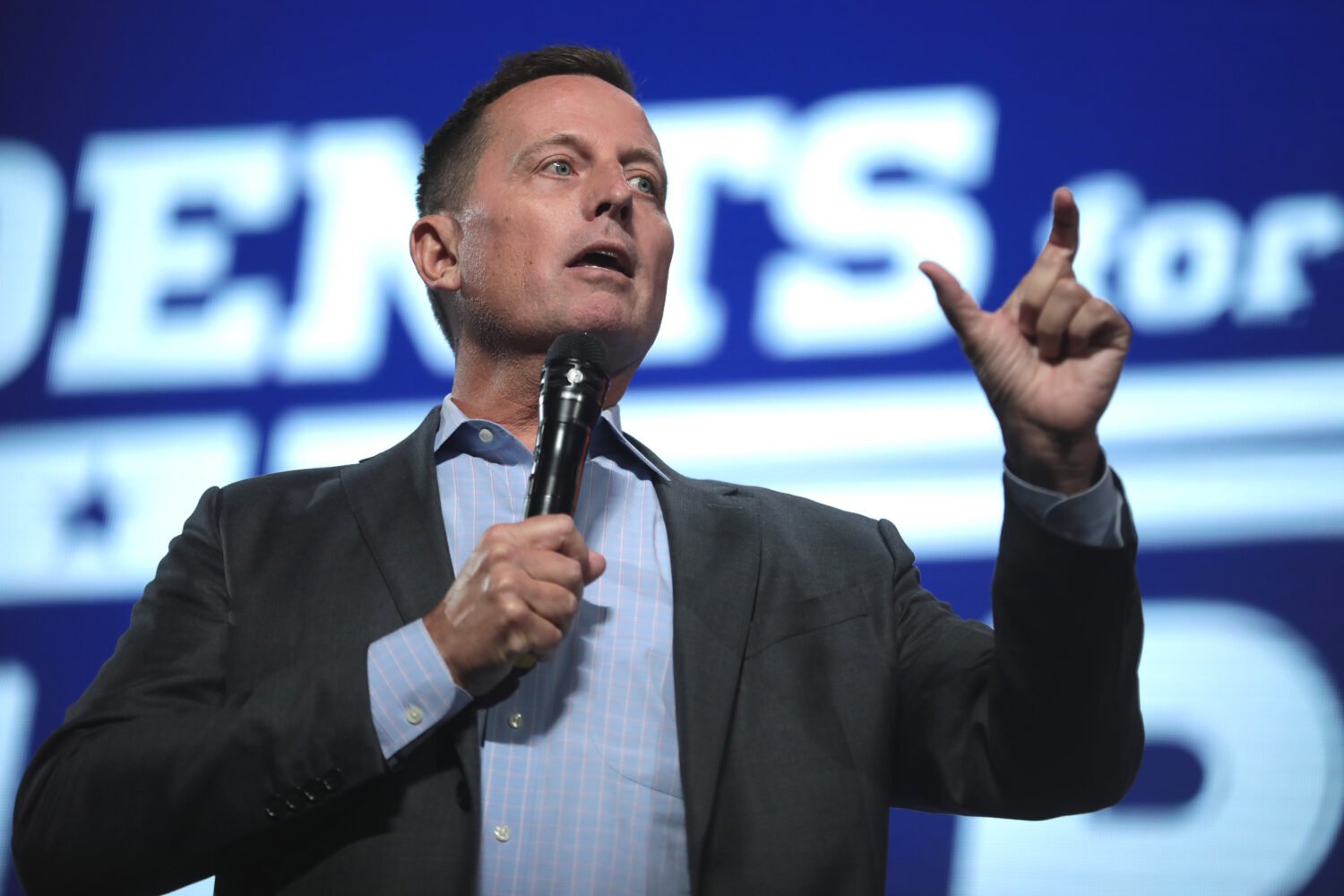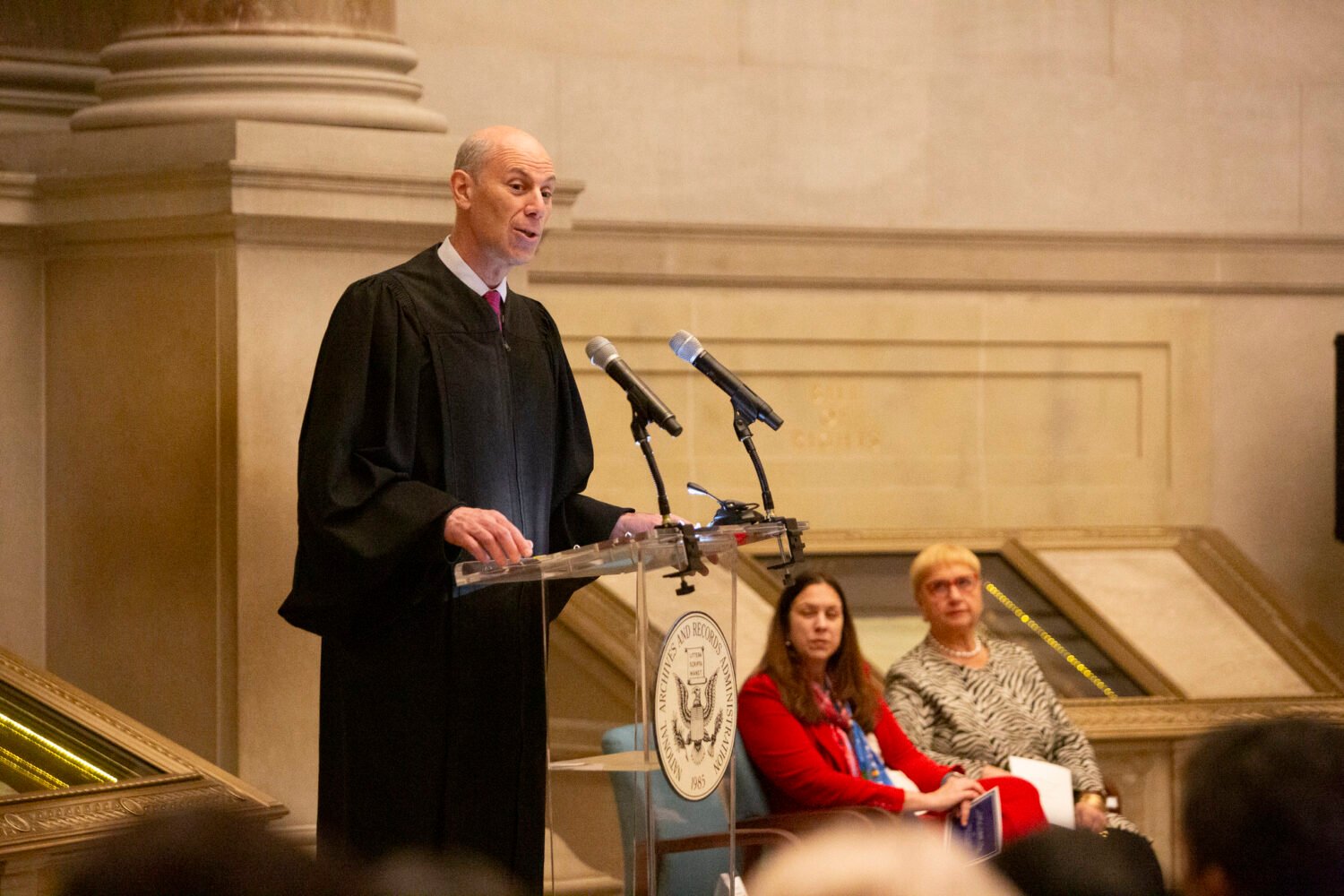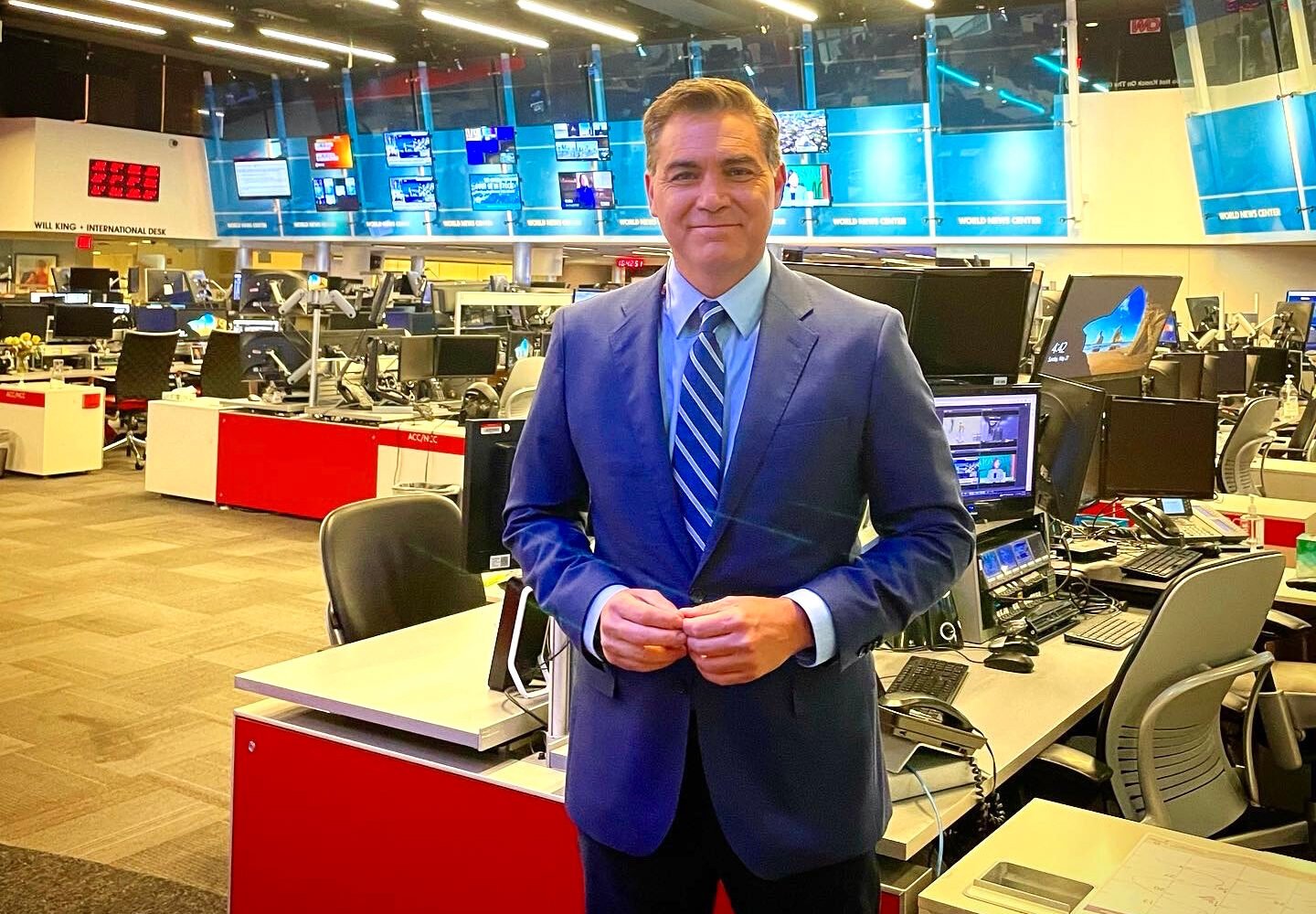National editor Ken Adelman (adelmank@aol.com) has been conducting What I've Learned interviews since 1988.
You almost have a better chance of seeing Halley's comet than a conflict-of-interest prosecution in Washington," says Charles Lewis. As founder and former head of the Center for Public Integrity, Lewis has spent most of his career looking at how people with money and power influence the laws that are made.
"Throughout history, it's always the wealthiest interests that get their way," he says. "But we cling to this illusion that we're a government of the people, by the people, and for the people–that the people actually do run the country."
Lewis was born in Newark, Delaware. His father was a security guard at General Motors, his mother a school secretary. He received a bachelor's degree in political science from the University of Delaware and a master's from the Johns Hopkins School of Advanced International Studies.
From 1977 to 1988, Lewis was an investigative reporter at ABC and a producer for Mike Wallace at CBS's 60 Minutes. His stories twice received Emmy nominations.
In 1989, he founded the Center for Public Integrity. During his 15 years at the helm, the center spent $30 million on investigations, and its findings appeared in some 10,000 media stories. In 1998, he received a MacArthur Foundation "genius" fellowship.
The center has published hundreds of investigative reports and books. It broke the Clinton White House "Lincoln Bedroom" fundraising scandal in 1996 and analyzed and posted on its Web site the US contracts in Iraq and Afghanistan in 2003. Among the books Lewis has authored or coauthored are The Buying of the President 2004: Who's Really Bankrolling Bush and His Democratic Challengers–and What They Expect in Return and The Cheating of America: How Tax Avoidance and Evasion by the Super Rich Are Costing the Country Billions–and What You Can Do About It.
He left the center at the end of 2004 to head the Fund for Independence in Journalism, a legal-defense fund to promote investigative journalism. He's finishing a book about "truth, power, the news media, and the public's right to know."
Lewis lives in Alexandria with his wife, Pamela Gilbert, a public-interest lawyer with Cuneo, Gilbert & LaDuca, and their five-year-old son, Gabriel. His daughter by a previous marriage, Cassie, lives in San Francisco and is getting a master's degree in creative writing.
After his return from Princeton, where he teaches a course on investigative journalism, we talked about what he's learned.
How corrupt is American politics?
Significantly. You can feel okay about our corruption only when going to other countries. There, it's generally worse.
But ours is legal corruption. You don't need to open a Cayman Islands bank account or have suitcases of cash. In Washington, corruption is made legal by campaign committees or by so-called 527 political organizations.
If it's legal, why is it corruption?
Because it's a gross misuse of public resources and a distortion of public policy. One reason it's not illegal is because our politicians are lawyers–they make it legal.
Besides, lots of laws are never enforced. Most corrupt practices aren't prosecuted, as they're considered "the way business is done around here."
Powerful interests have a lot at stake in Washington, so why not influence government decisions?
These people have much more clout than others. The number of lobbyists and the money expended surely help with access and influence public policy.
What's the worst part of this?
The policies that aren't made. People with no money and influence get no access, no influence over policy. They're the "one in five children" who live in poverty. They're the 40-plus million Americans without health insurance. These issues are perennially unaddressed.
But we have big allocations for Social Security, Medicaid, Medicare, and food stamps. Aren't these issues addressed in those ways?
Not as they should be. When politicians are looking for money to cut–after a Hurricane Katrina disaster costing $200 billion or whatever–they don't look at another defense contract for another weapon system. They cut food stamps. The first congressional agenda item after Katrina was "Let's get rid of that estate tax," which affects the top 2 percent of the country.
People don't notice that 40 percent of Pentagon contracts have only one bidder. Halliburton's $6 billion in contracts for Iraq isn't an isolated event. Yet all of this gets a big yawn in Washington.
If companies are getting–wink, wink–another contract and if they're underperforming, or even have committed fraud, and are still getting contracts–well, that's just how business is done.
We give these folks billions of dollars and don't hold them accountable. Why are those whom the IRS audits mostly the poor in this country? Why is $200 billion in taxes not paid every year? Why does nobody want to pursue these issues?
Over your 15-plus years in this field, has corruption gotten worse?
Yes. When we launched the Center for Public Integrity, there were many scandals and large amounts of money in politics. The state of journalism was pretty poor. The center was to be an antidote to all this. Yet I think abuses of power are even higher today.
The media is more superficial, more hollowed out. Too many journalists were mere stenographers during the buildup before our going into Iraq. There's a real crisis in journalism.
That's led to the dumbing down of the populace. Media sound bites went from 19 seconds 20 years ago to six seconds.
Public service has become the vehicle to punch your ticket for that big-paying job in the private sector. That was a glimmer on the horizon in the 1980s, but the cashing-in factor is full-fledged now.
Back then, people did public service and then went out to make $200,000 or $300,000 a year. The really big names would make maybe a million when they left. Now they're making tens of millions, hundreds of millions.
It's not enough anymore to become a lobbyist. They become an equity partner in a venture-capital firm, owning several companies–all of which get big contracts from the government. When an early partner of the Carlyle Group has shares reportedly worth $180 million–a former secretary of State–what's happening here?
Public service has become something you make big bucks from. Every IRS tax commissioner becomes worth millions of dollars more upon leaving office. It happens in both parties.
This Congress is the least independent, the most obedient to the executive branch that I've ever seen. Whenever one party controls the executive and legislative branches, this city gets laryngitis. That's not healthy in a democracy.
But if there are lobbyists on both sides of an issue, they balance each other. Isn't that the adversary system?
No, it doesn't work that way. While the Girl Scouts and General Motors both have lobbyists, the Girl Scouts probably have one and GM maybe 200. Besides, it hires a host of lobbying, law, and PR firms. There are also maybe 10 or 15 members of Congress from key states with GM factories.
Has Washington become meaner?
Yes, because it's more polarized and partisan. We have the Hatfields and McCoys battling, since we now have the most evenly divided politics since the 1880s. And today's less aggressive journalism lets politicians get away with terrible things.
It's been well documented–by the Harvard educational theorist Howard Gardner and others–that good people can no longer do good work in journalism. Sixty-eight percent of working journalists believe they can't trust their owners or feel their owners don't really believe in journalism.
The public has the lowest regard for the media since polls have been taken. Thirty-seven percent of high-school students think the government should censor the media.
Some owners of the commercial media have gotten obscenely rich. Their profit margins are 30 to 50 percent annually, at least for TV stations.
Aren't your lamentations on politics and the media old hat?
Yes, we've always had a healthy disrespect, even disdain, for Congress or politicians. Politics here has always been a battle between capitalism and democracy. Recently, though, capitalism is winning handily.
And we've long wanted to shoot the media messengers–that's true, too. But that situation has gotten objectively worse. Everyone sees the rich getting richer, big companies gobbling up more companies, and campaign contributions skyrocketing.
In the 2004 presidential election, George Bush and John Kerry each raised more than $300 million. We've always had the most expensive elections in the world, but these numbers get silly, like play money.
Ninety-six percent of Americans don't contribute a penny to any politician. The politicians naturally respond to people who give them all this money.
There's a formidable barrier for those wanting to enter public life who aren't wealthy. Forty members of the US Senate are millionaires. Less than 1 percent of Americans are millionaires.
Granted, there are rich people–John Connally, Michael Huffington, Steve Forbes–who don't make it to national office. Sometimes even guys who have more money than God but are fundamentally unlikable don't wear well with the public. You'll have to excuse me, but I enjoy that every time I see it.
I don't see it enough, partly because millionaires can fund their own campaigns. They aren't limited in any way.
What reforms have been effective?
In 2000, all these outside, mysterious groups were required to disclose what they were. That was a beneficial reform. There was a group called Republicans for Clean Air, which spent a few million to smear John McCain in the New York primaries. No one knew what this group was. But through a lot of prodding and poking, we found out it was a big Bush donor and his brother in Texas.
So that was a good law, even though it had a fundamental problem: The disclosure came to the IRS and was very confusing. You could barely understand that Web site, so the Center for Public Integrity created the only complete site that also makes it more understandable.
Even good laws are rarely enforced. There are a couple of clerks in the relevant office with no interest to go after violators of the Foreign Agent Registration Act.
What reforms do you want now?
For civics to be taught in schools throughout the nation. Kids should know our history and culture. The level of ignorance is alarming.
We need a national voting law, with the same type of voting machine in every precinct. After the Florida recount in 2000, I figured we'd finally have uniform voting. Guess what–we don't.
More than a million people vote in presidential elections without their votes being counted. Brazil, for God's sake, has electronic voting.
I'd make the Federal Election Commission into something real. Now it's a joke. When a candidate gets in trouble today, he pays the fine with campaign money. And you can create outside groups to do all the ads on your behalf.
Even the disclosure laws are faulty. We don't have real-time, Internet disclosure. The contributions that pour in on the last days before the election aren't disclosed until after the vote.
A group called Americans for Health Care raised $600,000 to run ads in Iowa that smeared Howard Dean by showing his photo alongside Osama bin Laden's. The 527 disclosure law didn't mandate disclosure until weeks after the Iowa caucuses. The public didn't know where this money came from when it voted.
Politicians in both parties always say they're for disclosure, but it doesn't happen. There's a reason–these guys are posturing. They don't really want to disclose.
Okay, so how do we get greater accountability?
Enforce the laws. Actually exert the oversight mechanisms. Enforce the checks and balances the Founding Fathers set up.
The media must get serious. They've got to start doing something. Investigate a story that lasts more than one day.
Truth has become whatever someone says the loudest and most often. We have split-screen blather on cable TV, with people screaming at each other. That's not discourse.
What big lessons have you learned about Washington politics?
That most officials do have substantial integrity. I believe in public service and respect it immensely. Civil-service employees in particular devote their lives to public service. I'm not saying political appointees don't deserve praise–they also sacrifice.
I worry about integrity not mattering enough. It's frequently not an issue at home or in schools. It's even less important in a mercenary culture, like that in Washington, where great wealth is omnipresent.
That would test anyone's integrity over time. The Boeing or Randy "Duke" Cunningham or Jack Abramoff cases–where people do downright scandalous things–are pretty rare; it's the under-the-radar stuff that shows little regard for integrity.
I've learned that one person can make a difference. I have an ego and some pride in what I've done, but anyone, no matter what field they're in, can do something extraordinarily important.
To do that, you must have a streak of idealism. I love the John Kennedy line of being an idealist without illusions. I may still have illusions, but I'm very much an idealist.
Which brings me to the most important thing I've learned: how little you really control. Someone can do something effective, but in the end you're just passing through. Whatever you think is great or terrible, it's temporary–because we're temporary.
I was in the African bush recently. If you step out of the Jeep, you're eaten by a lion. We were nothing more than lion meat, saved only by the Jeep. This led me to think about humility and grace. There's all too little of either in Washington.
I recently turned 50, which made me more conscious of watching the grains of sand in the hourglass drop down. You have to understand our limited time here, our limited role, and try to make the best of it.
As you get older, whatever you're doing better be pretty damn important, and you damn well better enjoy it.
"Most corrupt practices aren't prosecuted," Charles Lewis says, "as they're considered 'the way things are done.' "

















